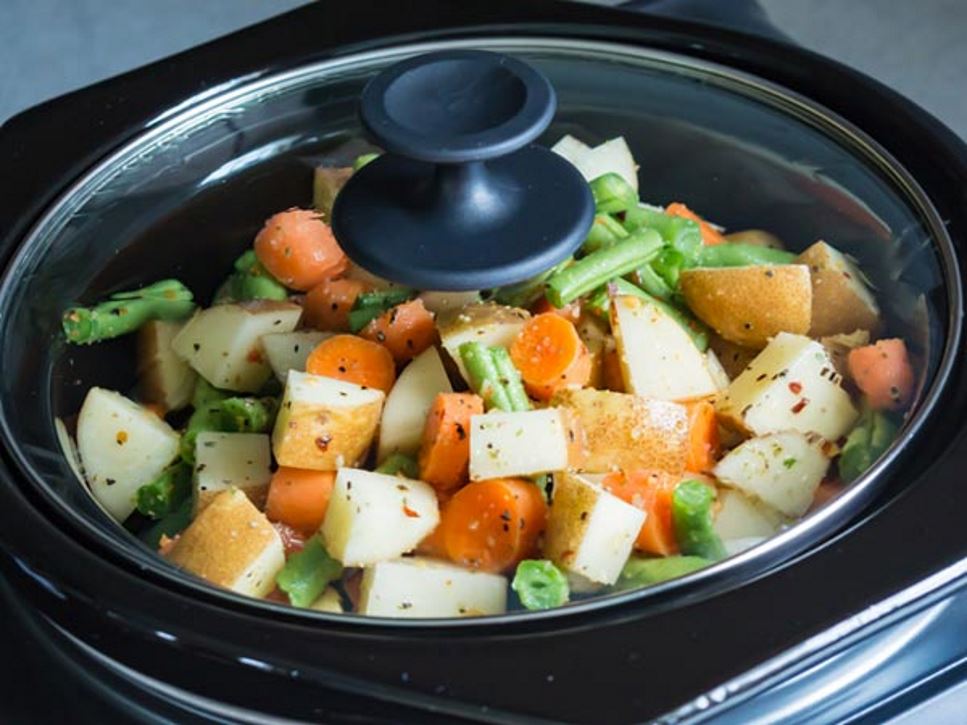It's five o'clock and you're driving the kids home from one of their many activities, when you hear the inevitable question, "What's for dinner?" If this scenario sounds familiar, the solution may be no further than the slow cooker on your kitchen counter.
Slow cookers cook food while you do other things. Slow cooker recipes will specify the heat level (typically low or high) and how many hours to cook the food. Busy parents love the "set it and forget it" convenience that slow cookers bring!
Eating more homemade meals, and less fast food, can ensure that kids get the fruits, vegetables, lean proteins, whole grains and low-fat dairy their growing bodies need. After the prep work is done, a slow cooker does the cooking for you while you're at work or busy with the kids, minimizing time spent in the kitchen.
Slow cookers aren't just for winter chilis, soups and stews — you can make appetizers, side dishes, fillings for sandwiches and tacos, and even desserts in a slow cooker. Unlike the oven or stove, a slow cooker gives off very little heat beyond the base, keeping your kitchen cool when it's hot outside.
Try these simple tips to make the most of this versatile kitchen tool:
- Prep ingredients in advance: Chop vegetables, soak beans and trim meats on a Saturday or Sunday when you have extra time. Be sure to cut uniform pieces for even cooking, and store prepped ingredients in airtight containers or zip-top bags in the refrigerator for up to three days.
- Make-ahead when possible: If your slow cooker has a removable insert, assemble the ingredients the night before and refrigerate the entire insert overnight. It's important to note that starting with cool ingredients may lengthen cooking time (but be sure to keep them out of the temperature danger zone).
- Reinvent leftovers: Instead of serving the same recipe two nights in a row, turn last night's dinner into something new. If you make a large roast, serve the leftovers as a filling for quesadillas or sandwiches.
Whenever using a slow cooker, be sure to follow good food safety practices to ensure your food cooks to safe temperatures and to reduce the risk of foodborne illness.
Find a Nutrition Expert
Looking for credible nutrition information and recommendations? The Academy of Nutrition and Dietetics' network of credentialed food and nutrition practitioners are ready to help!


